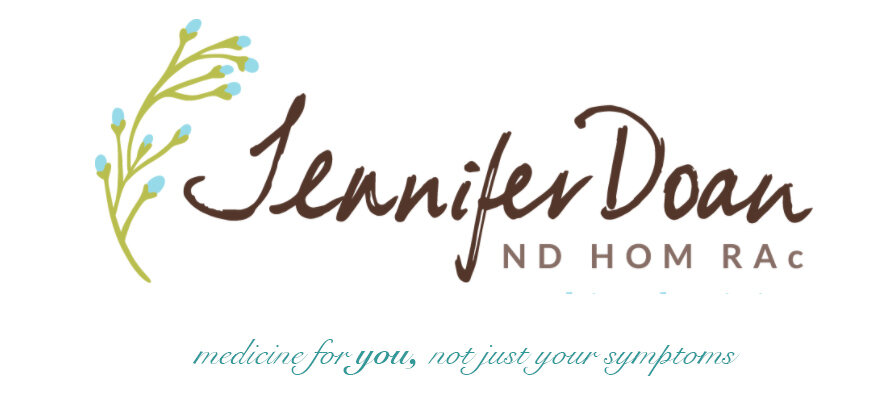Here are some great recipes you can do at home with a few plant medicines
Vapors for Steam Inhalation
Lavender essential oil Lavendula officinalis
Eucalyptus essential oil Eucalyptus globulus
Thyme essential oil Thymus vulgaris
Actions: This formula is an antispasmodic, antimicrobial and decongestant.
Indications: Vapors from this formula are inhaled directly into the sinuses as an antimicrobial agent. It is most useful for sinus and lung infections.
Contraindications, cautions and words of wisdom:
This formula is to be used as a vaporizer or as a steam inhalation. It is not for internal use.
Vapors for Steam Inhalation Dosage Chart
These are very strong, pure essential oils, so start with a small amount. Use 5-10 drops in a room vaporizer or a few drops in a pot of boiling water if used as steam inhalation. If a stronger dose is needed, increase slowly to prevent irritation of the lungs. If one of the oils is not available or feels too strong, you may choose to use one, two or all three of the oils.
Lavender essential oil, eucalyptus essential oil and Thyme essential oil open the sinuses, dilate the bronchials and kills infectious organisms residing in the respiratory tract.
___________________________________________________________________________
How to Make Herbal Preparation - TEAS
Teas can be made from freshly harvested herbs, or dry herbs. Store dry herbs in an airtight container away from light.
Infusions: Infusions are used for extraction of vulnerable constituents such as vitamins, enzymes and essential oils. The aerial parts of herbs are used such as flowers and leaves.
Decoctions: Decoctions are used for plant constituents that require more time and heat for extraction, such as mineral salts, bitter constituents, and hard parts of plants such as bark, roots and seeds.
How to make one cup of Infusion:
Two recommended methods:
1) Add one cup of boiling water to one heaping tablespoon of dry herb or three heaping tablespoons of fresh herb in an air-tight container like a canning jar.
2) Bring one cup of water to boil in a stainless steel or glass kettle. Remove the kettle from the burner and add one heaping tablespoon of the dry herb or three heaping tablespoons of fresh herb to the water. Cover the kettle with a tight fitting lid.
Steep for 10-15 minutes. Remove the lid, strain and drink the liquid. The tea can be consumed hot or cold, depending on usage. Large quantities can be stored in the refrigerator. Do not store longer than 3 days because it may grow mold. It is best to make teas as they are needed.
How to make one cup of decoction:
In a kettle, bring one cup of water and one tablespoon of dry herb or three heaping tablespoons of fresh herb to a boil. Cover the kettle with a tight fitting lid, and simmer the ingredients for 15-25 minutes. Remove the kettle from the burner and steep ten minutes. Strain and drink.
Immune System and Respiratory System tea recommendations:
Thyme tea, Thymus vulgaris. Thyme is a culinary herb with antibacterial, antimicrobial and has an affinity for the throat, the lungs and respiratory system. Gargle with the tea first before swallowing will help sore throats. The part used is the leaf, and can be infused.
Licorace tea: Glycyrrhiza glabra. Licorace inhibits growth of viruses, is anti-inflammatory, an immune modulator, nutritive and spasmolytic (anti-spasm). Licorace is best known for it’s effect on mucous membranes. It is used in adrenal fatigue, immune deficient states. Due to it’s pleasant taste, it makes a nice addition to formulas which are strong. Licorace should be used with caution with those with diagnosed hypertension. Licorace is a root, and can be decocted.
Astragalus, Astragalus membranaceus. Astragalus is a Chinese medicine herb, which is adaptogenic (this means it helps your body to adapt), antiviral, anti-inflammatory, anti-oxidant and hepatoprotective (helps protect your liver). It is immune enhancing, and is used in adrenal fatigue. The root is used, and astragalus can be decocted.
Garlic, Allium sativum. Fresh garlic contains allicin, a substance with antibiotic and antiviral properties. It’s also good for your digestive system. It has to be fresh garlic. Dried garlic is used for other purposes to do with the cardiovascular system (which you will also get from fresh) but only fresh garlic has the allicin for your immune system. Crush a garlic clove into a cup of hot water with lemon, and you have yourself a nice tea. Don’t add honey. Honey is sugar, and we are trying to stay away from sugar as it lowers your immune system. I know you’ve heard the drink differently, but trust me it’s not a good idea. If you are worried about that garlic smell, remember… people don’t want to be near you if you are not feeling great anyway.
This information is meant to inform only, not provide medical advice. You should always consult your doctor or naturopathic physician when it comes to your personal health, or before you start any treatment.
















